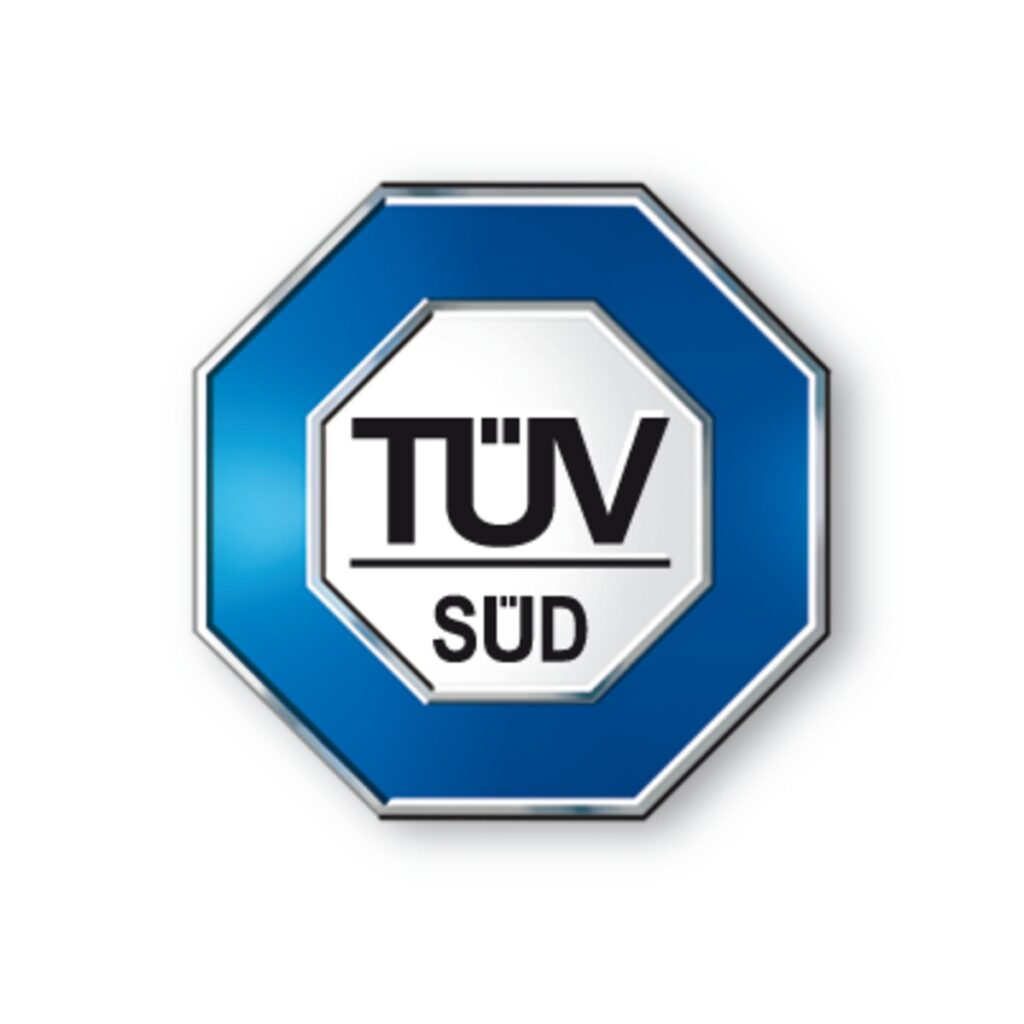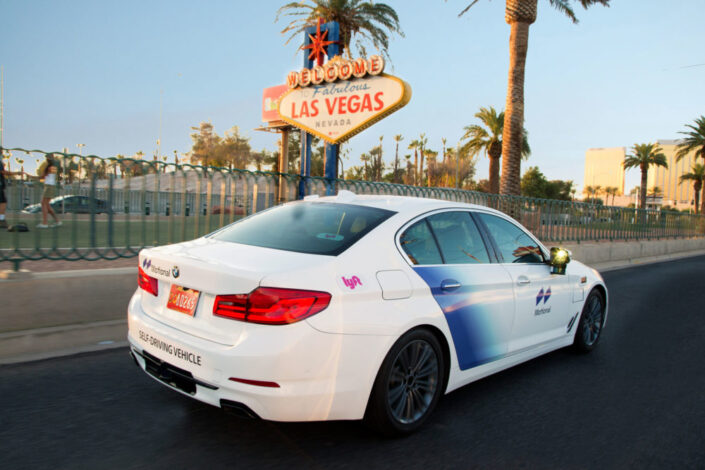Motional has been granted a TÜV Süd AV permit for driverless test operation of a subset fleet of robotaxis on public roads in Las Vegas, Nevada. TÜV Süd’s assessment focused on aspects including vehicle safety, functional safety and cybersecurity. Motional opted voluntarily for the independent safety and security evaluation, which extended over an 18-month period.
“In the US there is no statutory requirement for third-party assessment before permission to test automated vehicles on public roads is issued,” said Christian Gnandt, VP of automated driving at TÜV Süd. “The fact that Motional still approached us for assessment is a clear demonstration of its trust in our expertise in this field. We were very happy to have the opportunity of drawing on our extensive knowledge while expanding our experience at the same time.”
The robotaxis developed by Motional operate in regular road traffic along defined routes in Las Vegas. Instead of a human driver behind the wheel, the safety concept provides for a ‘safety steward’ in the front passenger seat, who has the ability to stop the car in the event of an emergency. “In this project we drew on the full scope of our experience gained from the approval of the first driverless public bus in Germany and adapted it to fit the project on hand,” continued Gnandt.
AV Permit is TÜV Süd’s contribution to the product development and documentation of automated vehicles (AVs) around the globe from its status as third-party partner. The assessment covers issues such as active and passive vehicle safety, functional safety and safety of use as well as cybersecurity. In addition to a detailed and in-depth review of the design documents, the services also cover preliminary inspections and vehicle testing. They are rounded off by comprehensive dynamic trials to test driving functions in a variety of real and simulated scenarios. The process ultimately ensures that the vehicle always responds in a safe and reliable manner.
TÜV Süd says its experts have been working successfully for many years with the competent authorities, including approval authorities around the world, on facilitating market access for vehicles with automated driving functions. Their efforts include proactive engagement in the development of new standards and regulations harmonized at international level.
Key safety aspects, particularly for connected vehicles, also span cybersecurity and secure interaction with the infrastructure. TÜV Süd’s experts accompany the entire process of vehicle and component development right from the start, also taking these sensitive topics into consideration. Their activities include extensive threat and risk assessments based on internationally recognized industry standards, tests to verify the effectiveness of the protective mechanisms used, and detailed advisory services and documentation. This process results in an extensive safety report that conforms with the latest requirements and international best practices.
“Our AV Permit is a service package offering OEMs and Tier 1/2 manufacturers highly practical assistance with the conception and design of automated vehicles,” explained Gnandt.
Experienced partner
TÜV Süd has accompanied the development of highly automated driving across various disciplines for more than six years. TÜV Süd’s experts in Germany are part of the research association VVM (Verification and Validation Methods for Autonomous Systems), working with 22 partners on developing compliant and efficient verification and validation methods for fully automated driving functions in autonomous vehicle systems.
In the ‘Driver Assistance Systems’ Special Committee at the Federal Ministry of Transport, TÜV Süd’s experts assist in revising the relevant standards. TÜV Süd and the German Research Center for Artificial Intelligence (DFKI) are working on the development of a ‘TÜV, a “roadworthiness test”, for algorithms’ and operating a proving ground for companies in partnership with the test field operator for autonomous driving in the German state of Baden-Württemberg and the Karlsruhe Transport Authority.
In addition to their work in national committees, TÜV Süd’s experts are representatives of CITA (International Motor Vehicle Inspection Committee) and are thus also engaged in the development of harmonized regulatory requirements within the United Nations (UN).
At international level, too, TÜV Süd is involved in many automated driving development projects – such as CETRAN (Centre of Excellence for Testing & Research of AVs at Nanyang Technological University in Singapore). TÜV Süd’s experts also participated in the development of the world’s first standard for the approval of fully automated vehicles in Singapore, TR 68.
Working with other partners and SAE International (Society of Automotive Engineers), the China Automotive Technology and Research Center (CATARC), the Institute of Electrical and Electronics Engineers (IEEE), the German Institute for Standardization (DIN), and the International Transportation Innovation Center (ITIC), they have established an international alliance (Alliance for Mobility Testing and Standardization (IAMTS)) to develop and harmonize globally standardized test methods and uniformly approved standards related to automated driving. With more than 40 partners from industry, universities and governments worldwide, TÜV Süd’s experts are also involved in joint projects aimed at advancing automated and connected driving.



